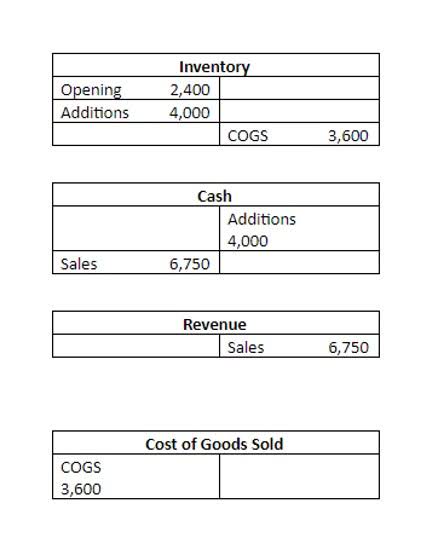
Deloitte refers to one or more of Deloitte Touche Tohmatsu Limited, a UK private company limited by guarantee (“DTTL”), its network of member firms, and their related entities. DTTL and each of its member firms are legally separate and independent entities. DTTL (also referred to as “Deloitte Global”) does not provide services to clients. Certain services may not be available to attest clients under the rules and regulations of public accounting. Please see /about to learn more about our global network of member firms.
Best for Small Business Landlords
Implementing this syncing is crucial for real-time financial reporting. Advanced software solutions offer features for real-time data syncing. Training sessions offer insights into real-time data syncing techniques. Accurate real-time data syncing drives financial transparency and stakeholder trust.
Accrual vs. Cash Accounting

A solid accounting system helps keep track of potential deductions, like mileage, home office expenses, and marketing costs, ensuring agents don’t pay more tax than necessary. It can also help plan for taxes, so there are no surprises at the end of the year. Strategic tax planning is paramount for real estate businesses aiming to minimize tax liability and enhance profitability. This involves a comprehensive approach, from selecting the appropriate business structure to optimizing deductions and leveraging tax credits. Recent updates to lease accounting standards, notably IFRS 16 and ASC 842, have significantly altered the landscape for real estate businesses. These standards require lessees to recognize nearly all leases on their balance sheets, affecting how companies report their financial position and performance.
Utilizing Modern Accounting Tools

real estate accounting services helps them track each property’s performance, ensuring optimal returns. It provides insights into rental incomes, maintenance costs, and potential areas of investment. Regular financial reviews help investors identify profitable ventures and potential risks. Moreover, with the rise of real estate accounting software, individual investors can now manage their portfolios with greater ease. Training sessions and workshops can further enhance their accounting skills. Ultimately, a solid accounting foundation is crucial for individual investors aiming for a successful real estate business.
- By submitting, you agree that KPMG LLP may process any personal information you provide pursuant to KPMG LLP’s Privacy Statement.
- Regular reviews, adherence to industry standards, and continuous professional development are essential components.
- Regular financial reviews help investors identify profitable ventures and potential risks.
- Real estate agents and brokerage firms have accounting software needs that differ from property managers and property management companies.
- Without reliable bookkeeping, agents are forced to make business decisions in the dark, often with undesirable results.
- For real estate professionals, these summaries are crucial for annual planning and strategy refinement.
- Furthermore, audits provide insights into areas of improvement and best practices.
- Full disclosure in financial statements ensures that stakeholders have all the necessary information.
- Accurate adjusting entries are crucial for financial transparency and stakeholder trust.
At Taxfyle, we connect small businesses with licensed, experienced CPAs or EAs in the US. It could also turn out that too much is being spent on office space relative to income, prompting a move to a more affordable location. Armed with this kind of information, agents can make strategic decisions that improve profitability and business growth. Navigating these and other tax issues demands specialized knowledge and strategic planning. The Cap Rate is a key metric for evaluating the return on an investment property. Understanding how to calculate and apply cap rates empowers investors to make informed decisions about potential acquisitions.
Notice of intent to sell rental property: Your obligations

Remember, mingling personal and business funds can raise red flags during audits and may impact your ability to accurately analyze your business’ financial performance. Keeping these funds separate is a best practice in real estate accounting that contributes to the overall financial health and integrity of your business. Yes, you can use a spreadsheet for real estate accounting, but it may not be the most efficient or accurate method, especially if you have multiple properties or transactions. A dedicated real estate accounting software can offer features such as automated data entry, transaction tracking, and tax preparation that can save you time and minimize errors. However, if you have a small real estate business and are comfortable with spreadsheet software, it may be a viable option. Identifying bottlenecks ensures that accounting processes remain efficient.

Start Improving Your Real Estate Accounting Processes

What to Look for in Accounting Software for Real Estate
- With tools like BizXpense Tracker, you can upload receipts and track costs related to certain projects—even if you have to use your personal card.
- Accurate disclosure ensures that stakeholders can make informed decisions based on comprehensive financial data.
- This includes the creation of budgets, studying financial trends, and evaluating strategies for increasing profits or reducing expenses.
- It could also turn out that too much is being spent on office space relative to income, prompting a move to a more affordable location.
- Implement our API within your platform to provide your clients with accounting services.

